IPSIの活動

台湾IPSIメンバー年次交流イベント-台湾における新IPSI行動計画の効果的な実施の促進
Lead organization: Forestry and Nature Conservation Agency (FANCA)
Other participating organizations: National Dong Hwa University (NDHU), National Pingtung University of Science and Technology (NPUST), Dharma Drum Institute of Liberal Arts (DILA), Taiwan Biodiversity Research Institute (TBRI)
Background:
Since 2019 to date, annual peer-to-peer learning and experience sharing events have been an important way of interaction and networking among Taiwan’s IPSI members. The first Taiwan IPSI Members Annual Exchange took place in August 2019. It was proposed by FANCA and NDHU as an innovative and collaborative way for the Team Taiwan to jointly prepare for the 8th IPSI Global Conference (IPSI-8) in Kumamoto, Japan. It was very well received by all its participants, helped to build a team spirit and mutual understanding, and resulted in a very fruitful engagement in IPSI-8.
Building on this success, FANCA and NDHU made a joint decision to promote Taiwan IPSI Members Annual Exchanges as yearly thematic events conducted for half a day at FANCA’s headquarters in Taipei. Each year’s theme was carefully designed to reflect the interests, ongoing and planned activities of Taiwan’s IPSI members and link them to the global perspective. Over the years, the themes have included: “Post-2020 Global Biodiversity Framework and its importance for the Satoyama Initiative in Taiwan” (2020), “Ten years of the Satoyama Initiative in Taiwan: lessons learned and future outlook” (2021), “Taiwan’s SEPLS: society living in connectivity with nature” (2022), and “IPSI Plan of Action (2023-2030): the meaning of five strategic objectives for Taiwan’s SEPLS” (2023).
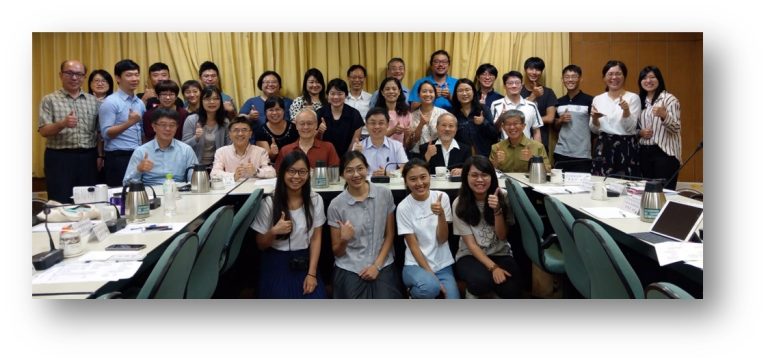
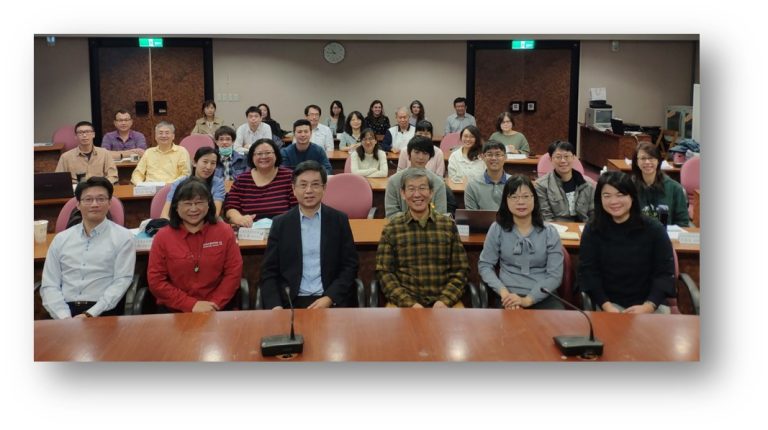
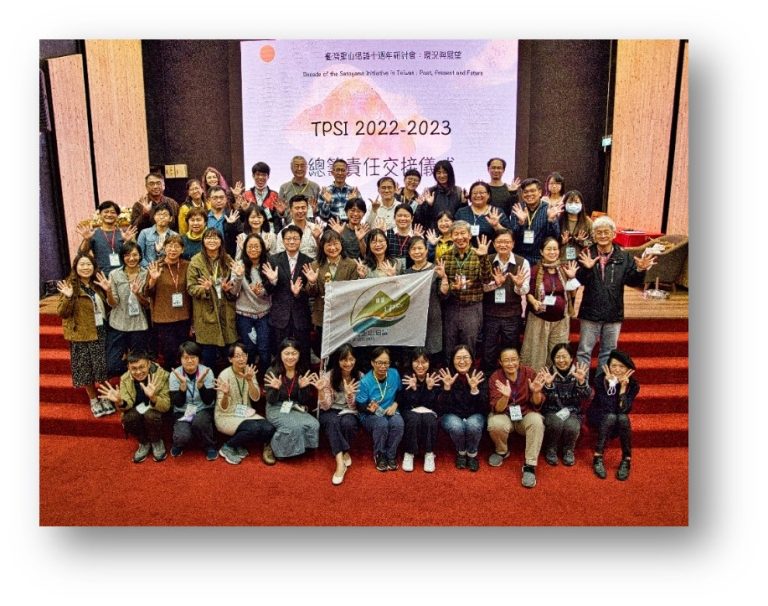
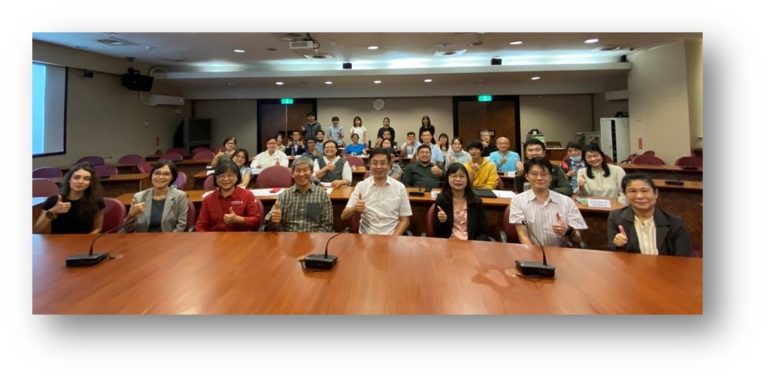
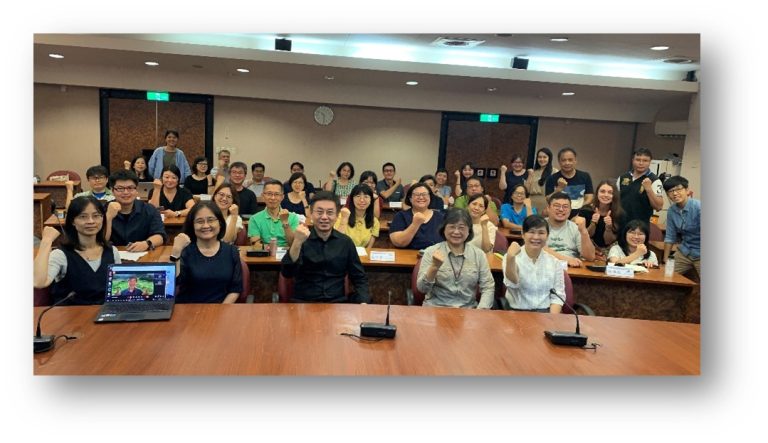
Rationale and relevance to IPSI Plan of Action (2023-2030):
Participation in IPSI-9 in Akita, Japan has become a turning point for Taiwan’s IPSI members. It allowed us to learn from other IPSI partners and further self-reflect on our own role in shaping the future of the Satoyama Initiative on the island. We asked ourselves the following questions:
- What does IPSI Plan of Action (2023-2030) mean within Taiwan’s context?
- How can each of its five strategic objectives be best promoted in Taiwan’s SEPLS?
- In which way can an enhanced cooperation between Taiwan’s IPSI members support a successful implementation of the five strategic objectives in Taiwan’s SEPLS?
These questions shaped the purpose of the proposed collaborative activity: to foster an in-depth exchange of practical knowledge and on-the-ground experiences between Taiwan’s IPSI members to thoroughly understand and effectively implement the five strategic objectives of IPSI Plan of Action (2023-2030) in Taiwan.
Activities:
The proposed collaborative activity is planned for an initial two-year period (2024-2025). It will continue the tradition of Taiwan IPSI Members Annual Exchanges (2019-2023) as well as learn from the experience of annual regional exchange workshops organised by Taiwan Partnership for the Satoyama Initiative (TPSI) regional exchange bases (TPSI-N, -W, -S, and -E) (2016-2023). This way, Taiwan IPSI Members Annual Exchanges (2024-2025) are planned as two-day annual events organised both outdoors and indoors at SEPLS case study sites of Taiwan’s IPSI members.
The thematic orientation of the Exchanges will focus on the on-the-ground exploration and in-depth discussion of the five strategic objectives of IPSI Plan of Action (2023-2030): (I) knowledge co-production, management, and uptake; (II) institutional frameworks and capacity development; (III) area-based conservation measures, (IV) ecosystem restoration, and (V) sustainable value chain development. The locations of the Exchanges will be determined in due time, potentially starting with SEPLS supported by the submitting organisations (please refer to p. 1 for more detail).
Resources and actors:
The collaborative activity will be financially and institutionally supported by FANCA and carried out by NDHU (TPSI-E), NPUST (TPSI-S), TBRI (TPSI-W), and DILA (TPSI-N) (please refer to p.1 for more detail). It will build on the existing strong partnership and shared leadership within TPSI network* and reach out to engage with all interested IPSI members in Taiwan (23 in total, as of December 2023).
*Note: TPSI network (>240 organisations) includes all interested Satoyama practitioners (IPLC organisations, government agencies, research and academia, NGOs and NPOs, green enterprises, farms and agro-parks, individuals) in northern, western, southern, and eastern regions of Taiwan, only some of which are IPSI members.
Expected outcomes and reporting:
It is anticipated that as a result of this collaborative activity:
(a) Taiwan’s IPSI members will have a comprehensive understanding of the meaning and application of the five strategic objectives of IPSI Plan of Action (2023-2030) in their respective SEPLS;
(b) Peer-to-peer learning and experience exchange between Taiwan’s IPSI members will be strengthened and lead to a closer networking and concrete partnerships within and beyond this collaborative activity;
(c) Lessons learned from this collaborative activity will be shared with the wider IPSI community by various means (e.g., IPSI global and regional conferences, SITR publications, case studies, etc.).
Reporting of this collaborative activity will be conducted in the form of the progress report (at the end of 2024) and the final report (at the end of 2025). It is anticipated that with the necessary adjustments, which will take into account participants’ feedback, lessons learned and future priorities, this collaborative activity will continue post-2025 to foster achievement of the 2030 Goals in Taiwan.


